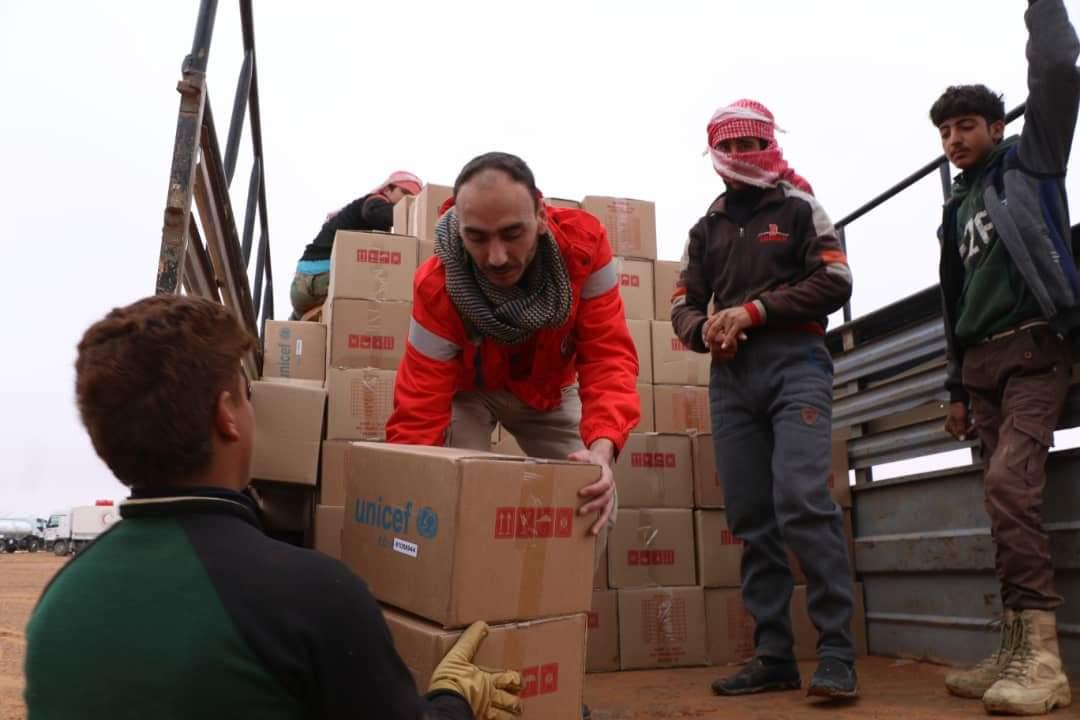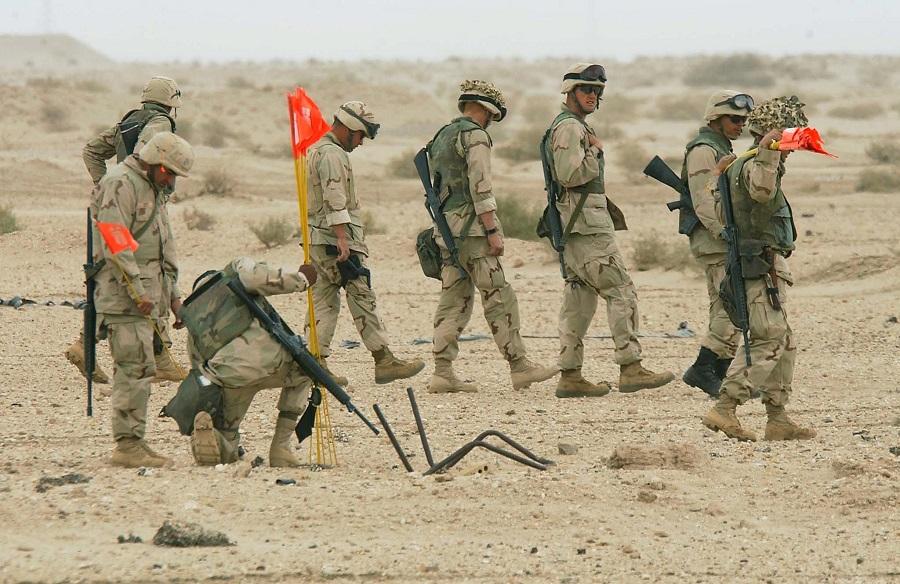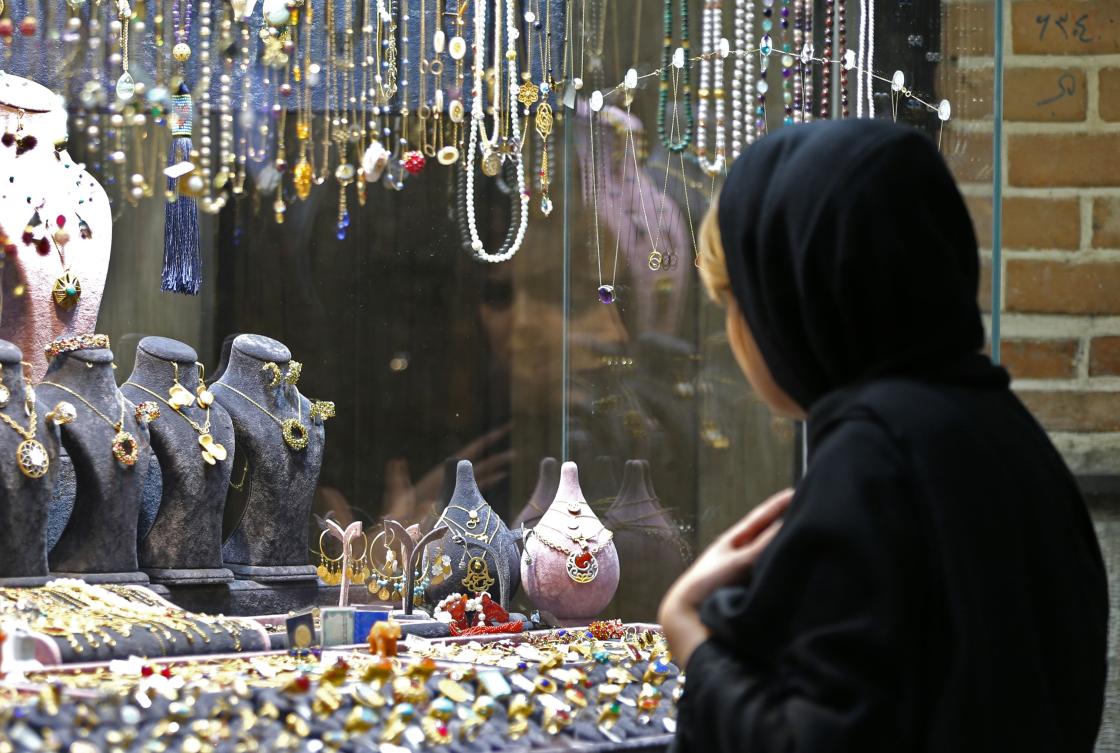Joint Media Release with the Hon Paul Fletcher MP and the Hon Michael Keenan MP – NDIS Taskforce makes first arrest
UN completes food distribution in remote Syria camp near Jordan
AMMAN: The United Nations has finished distribution of aid to thousands of Syrians, mostly women and children, stranded in the desert close to the border with Jordan, an aid official said on Wednesday.
A UN-led convoy of more than 70 trucks arrived on Saturday under Russian army protection after months of delay in the first such first aid delivery from inside Syria to the rebel-held camp that has over 50,000 people.
“We finished distribution of all items, food, sanitation and hygiene supplies and core relief items,” Fadwa AbedRabou Baroud, a UN official with the convoy told Reuters.
“The overall humanitarian situation in Rukban camp remains dire, with shortages of basic commodities, protection concerns, and the death of several children who reportedly were unable to get medical treatment,” Baroud said.
The assistance would only provide short respite and without regular and uninterrupted access, the plight of desperate residents in harshest desert conditions would only further deteriorate as winter cold sets in, the UN official added.
The UN team will complete a vaccination campaign against measles, polio and other diseases to protect some 10,000 vulnerable children in the camp before it departs, Baroud said. The US State Department welcomed the aid to the camp, located close to the Tanf US military base in the desert near where the borders of Syria, Jordan and Iraq converge.
The camp is within a “deconfliction zone” set up by US forces. Damascus says US troops are occupying Syrian territory and providing a safe haven for rebels.
Washington said it hoped Moscow would continue to put pressure on the Syrian government to comply with UN resolutions on allowing humanitarian access across frontlines.
The camp was last month besieged on the Syrian side of the border by the Syrian army, preventing smugglers and traders from delivering food.
In the last three years, tens of thousands of people have fled to the camp from Islamic State-held parts of Syria being targeted by Russian and US-led coalition air strikes.

UN to deliver aid to Syrians trapped near Jordan borderDamascus approves UN aid delivery to remote camp on Jordan-Syria border
Sentencing set for Syrian man convicted of making bomb parts
PHOENIX: A Syrian man accused of making a key component in improvised explosive devices used in attacks against US soldiers during the Iraq War is scheduled to be sentenced Wednesday on federal conspiracy charges.
Ahmed Alahmedalabdaloklah is accused of making circuit boards used to remotely detonate roadside bombs for the 1920 Revolution Brigades. Prosecutors have said the group claimed responsibility for 230 attacks against American soldiers in Iraq from 2005 to 2010.
He faces up to life in prison on each of his four convictions.
The case stemmed from a raid a decade ago at a Baghdad apartment where soldiers discovered a large cache of bomb-making materials, though no explosives were found. Prosecutors say his fingerprints were found on several items in the apartment.
Several people have tied him to the production of IED components, including one person who said Alahmedalabdaloklah found a factory in China to make the circuit boards after he fled Iraq, authorities said.
Alahmedalabdaloklah was convicted of conspiring to use a weapon of mass destruction, conspiring to destroy US government property with an explosive, possessing a destructive device in furtherance of a violent crime and conspiring to possess a destructive device in furtherance of a crime of violence.
He was acquitted on charges of providing support to terrorists and conspiring to commit extraterritorial murder of a US national.
Defense attorneys have said Alahmedalabdaloklah never expressed any sentiments against Americans in 12 years of emails that were reviewed by investigators.
They have said their client, who was brought to Iraq as a refugee when he was a child, operated a legitimate electronics shop in Baghdad and moved to China when security in Iraq deteriorated. They say he set up an electronics business in China that sold products in Iraq and elsewhere but never sent any components used in a bomb.
He was arrested in May 2011 after flying to Turkey from China. He was jailed for three years in Turkey before being extradited to the United States in August 2014.
The 1920 Revolution Brigades, the group he’s accused of selling parts to, was active against US forces in Sunni-dominated parts of Iraq until it switched sides in 2007 to fight against Al-Qaeda. The group derived its name from the 1920 revolution in which Iraqis revolted against a British occupation.
The trial was held in Phoenix because authorities say Alahmedalabdaloklah got components for a wireless initiation system used in the IEDs from a company based in Arizona.

Syria’s war: Assad regime accused of a host of crimesCarp ‘annihilated’ as Iraq’s water pollution woes worsen
Facing new sanctions, Iranians vent anger at rich and powerful
GENEVA: More Iranians are using social media to vent anger at what they see as the corruption and extravagance of a privileged few, while the majority struggles to get by in an economy facing tighter US sanctions.
The country has been hit by a wave of protests during the last year, some of them violent, but as economic pressures rise, people are increasingly pointing fingers at the rich and powerful, including clerics, diplomats, officials and their families.
One person channelling that resentment is Seyed Mahdi Sadrossadati, a relatively obscure cleric who has amassed 256,000 followers on his Instagram account with a series of scathing posts aimed at children of the elite.
In one recent post, he blasted the “luxury life” of a Revolutionary Guards commander and his son, who posted a selfie online in front of a tiger lying on the balcony of a mansion.
Openly criticizing a well-known member of the powerful military unit that answers to Supreme Leader Ayatollah Ali Khamenei is in itself an unusual act of defiance.
“A house tiger? What’s going on?” Sadrossadati wrote. “And this from a 25-year-old youth who could not gain such wealth. People are having serious difficulty getting diapers for their child.”
The Iranian rial currency has hit 149,000 to the US dollar on the black market used for most transactions, down from around 43,000 at the start of 2018, as US President Donald Trump vowed to pull out of the nuclear deal between Tehran and world powers aimed at curbing its nuclear program.
That has sent living costs sharply higher and made imports less accessible, while the threat of financial punishment from the United States has prompted many foreign companies to pull out of Iran or stay away.
The situation could get worse, as additional sanctions come into force this week.
“Sultan of coins“
Wary of growing frustration over the relative wealth of a few among the population of 81 million, Khamenei has approved the establishment of special courts focused on financial crimes.
The courts have handed out at least seven death sentences since they were set up in August, and some of the trials have been broadcast live on television.
Among those sentenced to death was Vahid Mazloumin, dubbed the “sultan of coins” by local media, a trader accused of manipulating the currency market and who was allegedly caught with two tons of gold coins, according to the Iranian Students’ News Agency (ISNA).
The tough sentences have not been enough to quell frustration, however, with high profile officials and clerics in the firing line.
“Because the economic situation is deteriorating, people are looking for someone to blame and in this way get revenge from the leaders and officials of the country,” said Saeed Leylaz, a Tehran-based economist and political analyst.
Washington is likely to welcome signs of pressure on Iran’s political and religious establishment, as it hopes that by squeezing the economy it can force Tehran to curb its nuclear program and row back on military and political expansion in the Middle East.
Public anger among Iranians has been building for some time.
Demonstrations over economic hardships began late last year, spreading to more than 80 cities and towns and resulting in at least 25 deaths.
Clerics
In addition to his written contributions, Sadrossadati has posted videos of debates between himself and some of those he has criticized.
In one, he confronted Mehdi Mazaheri, the son of a former central bank governor who was criticized online after a photograph appeared showing him wearing a large gold watch.
In a heated exchange, Sadrossadati shouted: “How did you get rich? How much money did you start out with and how much money do you have now? How many loans have you taken?“
Mazaheri, barely able to get in a reply, said he would be willing to share documents about his finances.
Children of more than a dozen other officials have been criticized online and are often referred to as “aghazadeh” — literally “noble-born” in Farsi but also a derogatory term used to describe their perceived extravagance.
High-profile clerics have also been targeted.
Mohammad Naghi Lotfi, who held the prestigious position of leading Friday prayers at a mosque in Ilam, west Iran, resigned in October after he was criticized on social media for being photographed stepping out of a luxury sports utility vehicle.
Facebook posts labelled Lotfi a hypocrite for highlighting ways that ordinary Iranians could get through the economic crisis during his speeches. The outcry was a major factor in his decision to resign from a post he had held for 18 years.
“The hype that was presented against me in this position … made me resign, lest in the creation of this hype the position of the Supreme Leader of the Islamic Revolution be damaged,” Lotfi told state media after stepping down.
“The issue of the vehicle … was all lies that they created in cyberspace,” he added.
He was one of at least four clerics in charge of Friday prayers who have resigned in the last year after being accused on social media of profligacy or financial impropriety.

Iranians fear more hardships as US sanctions begin to biteOil prices dip amid well-supplied market, Iran sanction waivers